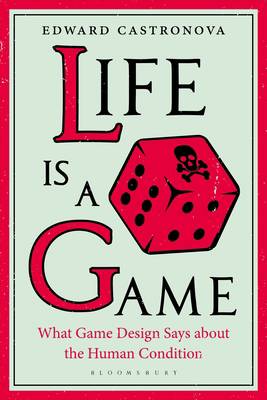
- Afhalen na 1 uur in een winkel met voorraad
- Gratis thuislevering in België vanaf € 30
- Ruim aanbod met 7 miljoen producten
- Afhalen na 1 uur in een winkel met voorraad
- Gratis thuislevering in België vanaf € 30
- Ruim aanbod met 7 miljoen producten
Zoeken
€ 271,45
+ 542 punten
Uitvoering
Omschrijving
For centuries, thinkers of all stripes have said that life is a game. What if that is true? What if life really is a game? What if our presence here is part of a vast and beautiful interactive machine?
Edward Castronova urges readers to think about the human condition in the same way that a player thinks about a game. So many of the mechanics we see in games are present in daily life, from role-playing and levelling up, to investing, diplomacy, and the sublime tension between the risk of loss and the thrill of victory. What is 'victory, ' though? We all have our own ideas about how to win this game. Some say the point is to feel good. Others say it is all about God, with Heaven as the win condition. However we envision our lives, game designs tells us how best to play. We decide what it means to win this game; game thinking tells us the most sensible way to do it. Thus, though it is new, the field of game design has much to say about the fundamental questions of human existence. Philosophy asks why we are here. Game Design answers: To interact, to choose, to play.Specificaties
Betrokkenen
- Auteur(s):
- Uitgeverij:
Inhoud
- Aantal bladzijden:
- 232
- Taal:
- Engels
Eigenschappen
- Productcode (EAN):
- 9781501359187
- Verschijningsdatum:
- 17/09/2020
- Uitvoering:
- Hardcover
- Formaat:
- Genaaid
- Afmetingen:
- 152 mm x 229 mm
- Gewicht:
- 476 g

Alleen bij Standaard Boekhandel
+ 542 punten op je klantenkaart van Standaard Boekhandel
Beoordelingen
We publiceren alleen reviews die voldoen aan de voorwaarden voor reviews. Bekijk onze voorwaarden voor reviews.








